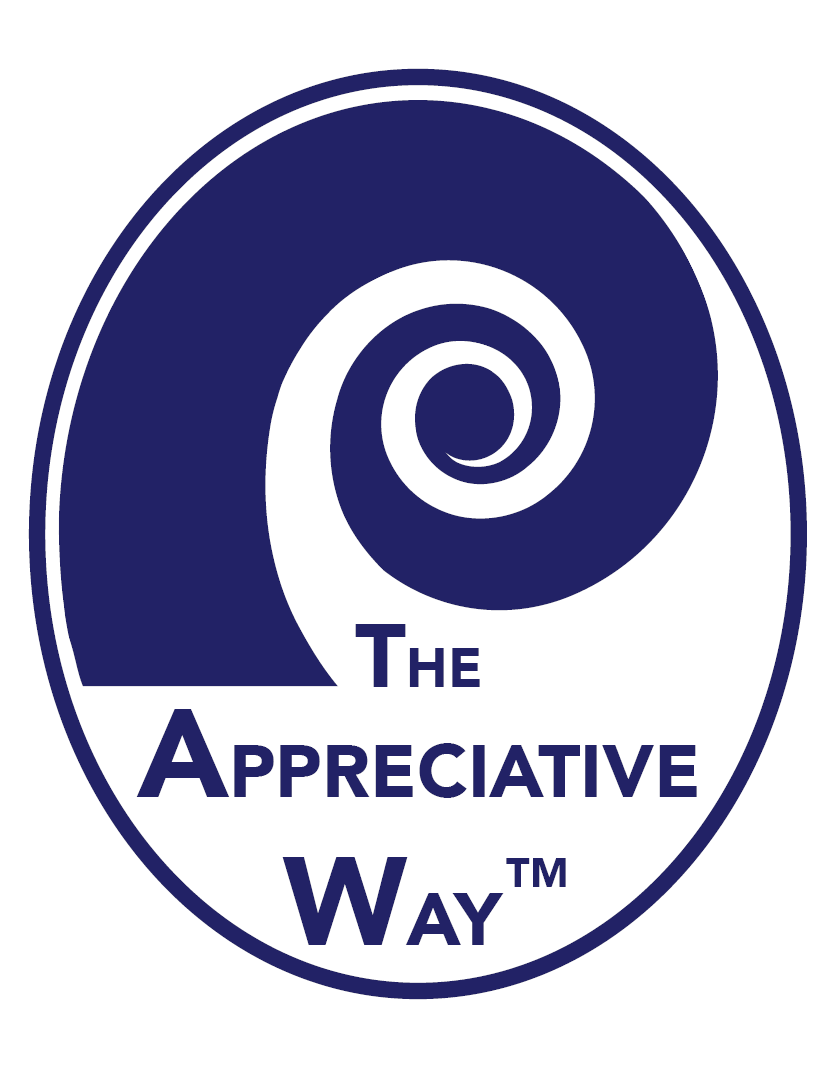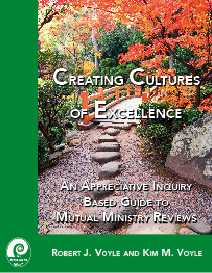

Creating Cultures
of Excellence
Appreciative Inquiry Based Guide to Mutual Ministry Reviews
- Templates and Worksheets
- For Congregations
- Individual Performance
- Coaching Strategies
Director of Training
- Episcopal priest
- Psychologist
- Executive Coach
- Helpful, Humorous, and Healing
Rob is an accomplished speaker and trainer. Participants consistently rate his training programs as:
"one of the best workshops I've attended in years"
>>
See Rob's Helpful,
Humorous, and Healing
approach to training
What Participants Say
Rob's training is full of heart, wit, and passion.
E.R. Executive Coach
Rob's combination of organizational savvy, teaching skills, theological & spiritual integration, and ability to rapidly build supportive, learning communities is quite simply the best in any of
the churches today.
Gray Temple, Episcopal Priest, Author & Coach
After 45 years in the pastoral ministry and attending three events led by Rob Voyle, I have finally learned a better way to help church leaders help themselves and the people they serve.
John Wilkerson, Director: Church Leadership Coaching & Consulting
Rob will enhance your ability to delight in yourself, your neighbor and God through his insightful, practical, loving, professionally grounded, appreciative and often mischievous coaching and
teaching skills; and that will make you a better leader and citizen in God's creation.
Ed Leidel, Episcopal Bishop and Congregational Coach serving North America
"I have been fully engaged emotionally, intellectually, and spiritually. Thank you for touching me at the core of my being."
M.E. Member of the UCC Church.
"Of all the training I have been to, your notes are the ones I keep coming back to time and again for practical resources."
P.W. Conference Pastor.
Rob's educational model brings body, mind and spirit together. I have been challenged intellectually, transformed spiritually, touched emotionally, gathering in communally. He came into my life at just the right time.
Jean Holmes, Presbyterian Pastor
Stay Connected
Receive The Appreciative Way our Free Email Newsletter
and receive advance notice of future programs.
Privacy: We never rent, sell, or share your email.
- Are you tired of being beaten up by performance appraisals?
- Do you want to learn new ways to create culture of excellence?
In this webinar you will:
- Learn the Folly of Annual Performance Reviews.
- Create an Appreciative Inquiry Based Learning Culture.
- Create Strategies and Reviews for Continuous Improvement.
- Learn Resourceful Ways of Responding to Criticism.

Our webinar programs provide:
- 24/7 Access to online class recordings.
- Live tutorials for consultation and application.
- Individual and virtual team learning.
- Full access to workshop participant resources.
- A new way of thinking about old ways of doing things
Webinar Schedule: Mutual Ministry Valuation
No Mutual Ministry Valuation webinars are scheduled at this time.
Please see training schedule for a complete listing of all webinar programs
This program may also be offered as an in-person training for Church Boards, Personnel Committees, and Congregation Leaders. Please see: In-Person Training Options.
The Folly of Annual Performance Reviews
The worst thing in American business is the annual performance appraisal.
It evokes fear and robs workers of the right to pride in their workmanship...
Edward Demings
Think back over all the annual performance reviews that you have received...
How many left you:
- Inspired and motivated to a better job?
- Equipped and resourced to do a better job?
- With a mutual employer/employee understanding of what you were good at and how that could enrich both you and the company?
or did the review leave you:
- Angry and frustrated?
- Deeply hurt and demotivated?
- Thinking about quitting and finding a job where you would be appreciated?
I have asked that question in many executive coach training programs and on average only 8% of the respondents report a positive experience of reviews that improved their job performance.
Rather than achieve their purpose of improving performance, the annual performance review actually reduces effective performance and yet the majority of employers continue to use these destructive practices.
As a church consultant I have often seen these same destructive practices used in the church, often under the guise of "Mutual Ministry Review." For the sake of the church let us be smarter than the world and find an effective alternative!
Article: The Folly of Annual Performance Reviews
An Appreciative Inquiry Based Alternative -
Creating Cultures of Excellence
To create a better world we don't need better people,
we just need to help people discover and be their best.
Just because annual performance reviews don't achieve their objective we don't have to give up on the pursuit of excellence.
We use an appreciative inquiry model of continuous improvement to create cultures of excellence in which we can:
- Celebrate achievement.
- Learn from mistakes and failure.
- Create cultures of creativity, acceptance and excellence.
From Mutual Ministry Review to Mutual Ministry Valuation
We cannot achieve life by having less death.
Rather than reviewing performance to discover what is wrong we need to discover what is valuable and how we can grow that which is valuable. By regularly reviewing what is valuable.
Here are three appreciative performance valuing questions:
- What did you value about what you did?
- What would you do next time to make it more valuable?
- What do you need to be able to improve its value in the future?
Parable of What Not to Do and What to Do When Creating Cultures of Excellence
A narrative example of failure and success in creating Cultures of Excellence. The parables are excerpted from the complete manual and are suitable for sharing with Church Boards
From Feed-Back to Feed-Forward
Do people need feed-back? If "yes" then why? ...
Most people affirm the need for feed-back but rarely with a clear understanding of why.
If the answer is to improve future performance (this actually is the only valid reason, since we will spend the rest of our lives in the future) then we need to ask: Does feed-back improve future performance? And the answer is categorically No!.
However feed-forward has shown it can improve future performance.
Let's define out terms:
- Feed-Back is commentary either positive or negative about what was done in the past.
- Feed-Forward is advice on what to do differently in the future. To improve performance the person must be able to imagine implementing the feed-forward.
To improve performance we need to spend our time focusing on what to do in the future and ensuring that people have the skills, motivation, and resources they need to implement those changes.
Program Content
In the Program Participants will Learn:
- How to create models of continuous improvement rather than annual reviews.
- How to create appreciative individual employee performance goals.
- How to transform critical feedback into positive feed-forward.
- How to facilitate an Appreciative Inquiry Summit to establish a congregation's vision and goals.
- Developing resources to creatively deal with criticism.
Course Objectives
- Participants will learn an appreciative inquiry based process of continuous improvement.
- Participants will learn the Folly of Feed-back and the Wisdom of Feed-forward.
- Participants will learn strategies to create program specific models for achieving and sustaining excellence.
Who Should Attend This Webinar
This program is especially designed for:
- Clergy and church leaders.
- Non-ordained persons engaged in ministry.
- Personnel Boards
- Psychologists, Consultants and Counselors
who are also clergy or who work with clergy and churches.






